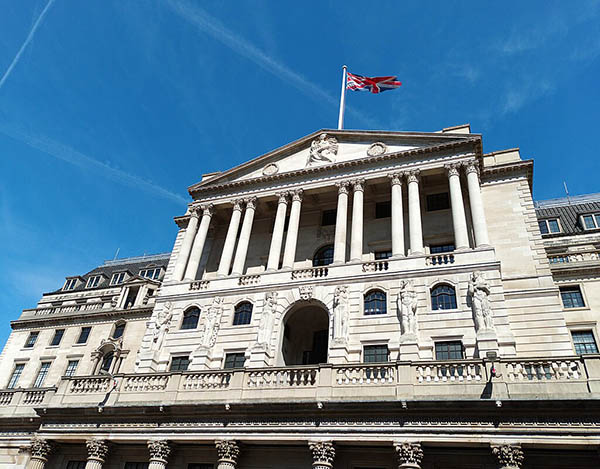Ever since Margaret Thatcher championed the notion of a “property‑owning democracy” and introduced Right to Buy in 1980, the UK has been infatuated with homeownership — and Kemi Badenoch clearly understands that resonance.
Yesterday, in a bold show of intention, she used the closing speech of her first conference as Conservative leader to pledge that a future Tory government would abolish stamp duty on primary residences.
Her aim is to galvanise support among voters and reinvigorate her leadership, framing this as a bold, signal policy to cut through the noise and stir momentum among the faithful and undecided alike.
Industry reactions:
Nathan Emerson, CEO of Propertymark:
“Across England and Northern Ireland, Stamp Duty has often proven to be a negative pressure for many consumers regarding housing transactions, often placing extra strain and uncertainty within the process.
“Earlier this year we witnessed the direct effect of stamp duty threshold changes, with a rush to complete on transactions on the lead up to April, followed by an immediate lull in the months that followed.
“Propertymark welcomes any proposals that bring higher levels of consumer confidence and affordability, helps streamline the buying and selling process, opens additional opportunities to purchase a property for those who aspire to buy, as well as enabling and supporting people to secure a long-term permanent home that fits their needs more easily.”
Tom Bill, head of UK residential research at Knight Frank: “Stamp duty is the one lever politicians can pull that is guaranteed to have an immediate impact on the housing market. If bond markets feel confident that it has been fully costed and mortgage costs don’t spike, buyers and sellers would warmly welcome the move. It would inevitably have positive repercussions for the wider economy and increase social mobility. The only downside is that if the Tories are leading in the polls ahead of the next general election, the housing market could grind to a halt.”
Jennie Hancock, founder and director of Property Acquisitions: “Stamp Duty is such a prohibitive tax, and that was clear for everyone to see when the temporary Stamp Duty holiday was introduced during covid. In over 30 years of working in the housing market, I’ve never witnessed such an instant and dramatic turnaround in the market. It’s unlikely the Conservatives will have the opportunity to implement this policy any time soon, but my hope is that after three years of property market stagnation, Labour takes note and recognises the vast economic benefits scrapping Stamp Duty would bring.”
Alisa Zotimova, founder and CEO of AZ Real Estate, comments: “This seems like a ‘finger in the air’ policy to try and claw back support during a desperate time for the Conservative Party. The housing market is a highly charged, emotive topic and they know this.
“While I agree there should be some sort of reform to Stamp Duty, this isn’t it. There are a multitude of reasons why we don’t have a ‘mobile market’ at present, and these are all issues which need exploring properly.”
Steph Vass, Co-Founder of TAUK: “Abolishing stamp duty on main homes would remove one of the biggest financial hurdles facing buyers and could make a real difference to market mobility. Stamp duty has long been seen as an outdated, punitive tax that discourages people from moving, downsizing or taking their first step on the ladder – so any move to remove that barrier is welcome.
“The detail will matter, but if implemented responsibly, this could give both buyers and sellers greater freedom and confidence at a time when the market needs it most.
“At TAUK, we support any proactive reforms that make the system fairer and simpler, help more people realise the dream of home ownership, and enable people to climb the property ladder more easily. We believe a more active housing market would deliver greater growth in the property sector, while also delivering higher revenue for the national-purse through additional income tax and VAT.”
Lucian Cook, head of residential research at Savills: “The impact that abolishing stamp duty would have is largely dependent on what replaces it, given that residential property transactions currently generate £10.4bn for the Treasury. Of that sum £5.5bn comes from people’s primary homes, with £2.6bn of the remaining £4.9bn coming from the underlying rate of tax on investment second home purchases.
“If, and this is a big if, it is a simple tax giveaway, the likelihood is that the current stamp duty bill simply passes through into prices.
“On that basis, that would indicate an uplift in house prices of around 1.4% to 2.1% on average or £5,100 to £7,500 depending on exactly how it is implemented. However, given the way stamp duty works, this would be unevenly distributed across the country’s housing stock with a much greater impact on high value homes, meaning London and the South East would benefit most.
“It is difficult to model what it would do to transactions, but it should free up transactions, especially among the groups that bear the biggest exposure to taxes. With the reliefs already available, it would have the least impact on first-time buyer numbers, with much bigger impacts on mortgaged home buyers and downsizers.
“The impact on investors and second homeowners will be much less, depending on whether they also benefit from a reduction in the underlying rate of tax.
Average Stamp Duty bill (based on average rates of tax for 2021/22 to 2023/24):
| Average Rate | House Price | Average SDLT bill | |
| North East | 1.4% | 184,875 | 2,623 |
| Yorkshire and The Humber | 1.5% | 228,566 | 3,502 |
| North West | 1.7% | 233,618 | 4,029 |
| East Midlands | 1.6% | 261,393 | 4,081 |
| West Midlands | 1.7% | 268,775 | 4,549 |
| South West | 2.4% | 352,197 | 8,433 |
| East of England | 2.4% | 383,845 | 9,069 |
| South East | 2.9% | 432,130 | 12,393 |
| London | 4.8% | 674,079 | 32,208 |
| England | 2.8% | 354,554 | 9,929 |
| Northern Ireland | 1.3% | 191,233 | 2,404 |
| England & Northern Ireland | 2.8% | 350,127 | 9,729 |
Source: Savills using HMRC data
| Price Band | Average Price | Average SDLT bill | |
| £250,000 or less | 0.8% | 155,421 | 1,297 |
| £250,001 to £500,000 | 1.6% | 352,997 | 5,724 |
| £500,001 to £1,000,000 | 3.4% | 667,960 | 22,921 |
| £1,000,001 to £1,500,000 | 5.5% | 1,225,478 | 67,695 |
| £1,500,001 to £2,000,000 | 7.0% | 1,722,549 | 120,656 |
| £2m+ | 7.1% | 4,689,091 | 334,595 |
| All price bands | 2.8% | 350,115 | 9,729 |
Source: Savills using HMRC data
Rachel Reeves urged to match Kemi Badenoch by cutting stamp duty in Budget








